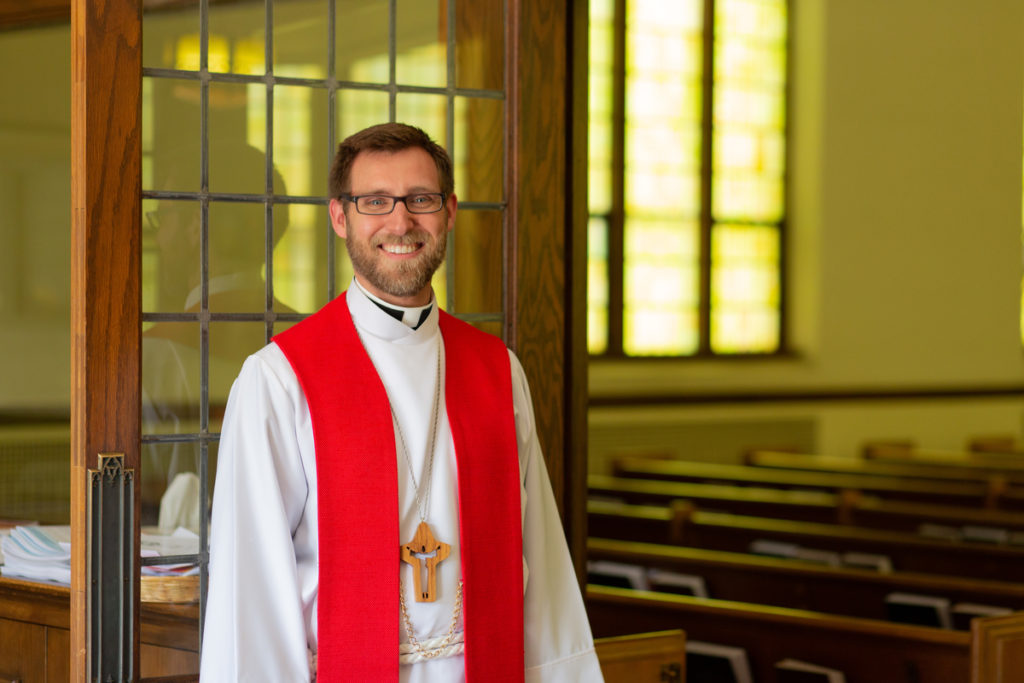This article is written especially for smaller congregations that are either 1) already experiencing a pastoral vacancy, or 2) know that their solo pastor will be retiring within the next one or two years. If your congregation fits this description it is essential that you understand the full scope of the challenges you will face, or already are facing, when it comes to finding and calling your next pastor.
You might be hesitating to read further. After all, you might be convinced that the “right” pastor is out there, and the Holy Spirit will undoubtedly lead him or her to your congregation. But know this: The current shortage of Lutheran pastors is unprecedented. Moreover, this shortage is unprecedented in my lifetime…and I was born in 1951!
However, if you keep reading you will learn of a congregational ministry strategy that provides you with a viable “Plan B” if and when you decide that it is highly unlikely that your congregation will—in the near future—be able to identify and call the “right” pastor. And please note: Lutheran CORE is ready to come alongside your congregation to help you address this ministry challenge. Now back to the matter of “unprecedented in my lifetime.”
About the only advantage to being 72 is all the recent history I have witnessed. And in my lifetime I have witnessed phenomenal and dramatic changes in the mainline Protestant church in general, and the Lutheran church in particular.
First there is my family history. I am a third-generation Lutheran pastor. My parents were missionaries in China when, in 1949, they and my older sister had to be evacuated when the Communists took over the country. My father—Les Brandt—subsequently had parish ministry calls in Minnesota and North Dakota; i.e., “Luther-land”. In 1958 my father was called to start a new congregation in Orange County, California. This was when Southern California was experiencing a significant migration of Midwestern Lutherans to that part of the country. (In fact, Orange County, in the 1950’s, experienced a 278% growth in its total population!)
Now for what I personally experienced as a member of the Baby Boom generation. In that rapidly-growing Orange County congregation I was surrounded by the children of my generation; children whose parents expected them to attend church and Sunday school. Not surprisingly, my experience growing up in the church was profoundly impacted by being a part of what was then the largest generation in American history. This included being a part of active church youth groups, and working for Lutheran Student Movement in the early 1970’s. When I started Luther seminary in 1974 all the dorm rooms were occupied and the student body was close to 600 students. (And there were then seven other Lutheran seminaries I could have attended.) When I graduated (from Wartburg Seminary) there were only three students out of a class of 60 who had a call by the time of graduation. Fact was there were far more graduates than there were available calls.
Then, on a less personal note, there is the matter of the milestones in American church history I have witnessed. The year 1960 was the year when 63% of Americans were members of Christian congregations. In 2020 it was 47%. In 1960 two-thirds of Americans identified as Protestants; mostly belonging to mainline churches. Today less than 15% of Americans are part of mainline denominations. As recently as the 1980’s and 1990’s a great many Lutheran congregations were benefiting from the phenomenon of nesting-stage Boomers who were returning to church because they decided that church would be “good for the kids”. In one article about Boomer parents returning to church the weekly magazine of the Los Angeles Times quoted a parent who said, “I was pretty wild as a teen and young adult. But now I am a father and I want my kids to have some values.”
So much for nostalgia. In 2024 the picture is far more bleak. And one of the dramatic examples of this—in addition to only 15% of Americans currently being a part of mainline Protestant churches—is the crisis when it comes to too few pastors available for too many pastoral vacancies. The easiest way to explain this clergy supply shortage is to understand two current realities:
1. Too many Boomer pastors are retiring. And the youngest Boomer pastors will not reach the age of 65 until 2029. This means that, for at least the next five years, the number of vacancies will only increase.
2. There are far too few men and women pursuing a seminary education. And many of these students will graduate at an older age than used to be the case; meaning that their time as active parish pastors will be relatively short.
Now for the unique challenges when it comes to smaller congregations identifying and calling the “right” pastor. The current reality is that smaller congregations are at a distinct disadvantage even when they are able to provide an adequate salary package. With too many calls for too few candidates, pastors today have multiple call options. And most of them are applying for call opportunities at mid-sized and larger churches.
Finally, the good news. Lutheran CORE is offering coaching assistance for smaller Lutheran congregations who are already looking for a pastor, or who soon will be. This ministry is the Congregational Lay-leadership Initiative, or CLI. One important key to this particular ministry is to tap into the growing number of active, retired Boomer Lutheran pastors. Some of these pastors are ready to coach a church, like yours, as you address the current clergy supply crisis. (This would be online coaching, not in-person.) With CLI your congregational leaders would be mentored by a capable pastor as you enlist and train a few members of your congregation to take on the role of lay ministers.
Details about the Congregational Lay-leadership Initiative can be found here on the Lutheran CORE website. Also, click here to read a previous article which provides one possible, detailed scenario regarding how a congregation can launch this type of ministry. And then, if you still have questions and want to communicate with a human being, contact me directly. I would welcome the opportunity to connect with you; either by email or phone.
Pastor Don Brandt
Congregational Lay-leadership Initiative (CLI)
503-559-2034




















This is just great …! I am forwarding this to myself so I can email it to a leader of a small congregation!!